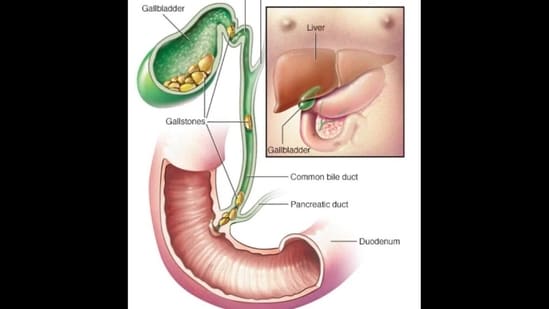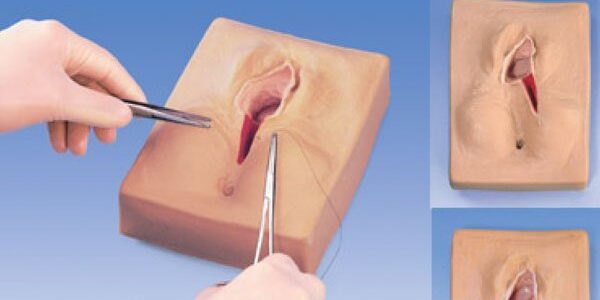Discover the complex connection between gallstones and gallbladder cancer (GBC) as medical professionals clarify the symptoms, risk factors, and special concerns for gallstone sufferers. Recognize the need of individualized examination and the fact that not all gallstone instances result in malignancy.
Gallstones are a frequent worry for many people, since they may sometimes result in major issues and cause pain. A developing worry among these side effects is the possible connection between gallstones and the onset of gallbladder cancer (GBC). However, is this relationship obvious, or are there certain subtleties that must be grasped? Let’s examine this subject in more detail and hear from medical professionals.
Recognizing the Connection
Gallstones have long been known to be a major risk factor for gallbladder cancer, especially in areas like northern India where the rates of both diseases are high. It’s important to remember that gallstones and GBC have a complicated connection. A number of reasons lead to the development of GBC, according to Dr. Shivendra Singh, Chief of GI Oncosurgery and Liver Transplant Services and Senior Consultant.
Risk Factors for Gallbladder Cancer
While gallstones are often found during tests for gallbladder cancer, not everyone with gallstones will go on to develop cancer, as Dr. Singh emphasizes. The pathophysiology of GBC is influenced by a number of co-factors, including comorbidities including chronic infections, age, gender, and socioeconomic status. Carcinogenesis is also influenced by environmental variables, such as pollution exposure and dietary practices.
The Affected Individuals’ Risk Profile
There is a higher risk of gallstone disease and its associated consequences among some demographic groups. Gallstone disease mostly affects middle-aged women, especially those over forty, who are often referred to as “fat, fertile, female over forty,” as Dr. Singh notes. Furthermore, the diverse types of gallstones that are common in different areas influence the fluctuating prevalence of GBC.
Handling Issues: Removal of the Gallbladder
The worry of gallbladder cancer is one of the main worries for those with gallstones. Dr. Singh does stress that not all gallstone cases need removing the gallbladder. Every case has to be assessed separately, taking the patient’s symptoms, medical background, and general health into account. Although gallstones are recognized as a risk factor for the development of cancer, most gallstone sufferers do not go on to get the disease.
Indications and Cautionary Notes
Early identification of gallbladder cancer might be difficult as symptoms may not always be apparent. Still, there are certain red flags that need more investigation. It is important to pay attention to symptoms including nausea, vomiting, weight loss, and abdominal pain, particularly if there are established risk factors.
Final Thoughts
In conclusion, there is a complex association between gallstones and gallbladder cancer, even though they are a risk factor for the latter. For preventative and control techniques to be successful, it is essential to understand how different components interact. People who have gallstones should be routinely screened and monitored, but based on a customized risk assessment, gallbladder removal should only be done seldom.
“Gallstones and Gallbladder Cancer: Insights from Experts”



